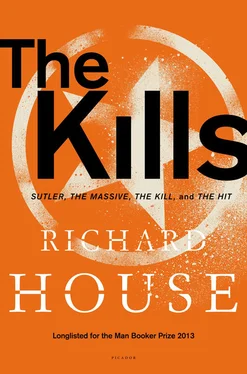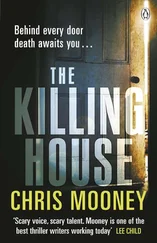U fuck raw?
This discovery could not be undone.
Halfway to her bedroom she decided this could not be ignored — and returned to the computer to check the dates of the files. The information quickly confused her. A number of the meetings were scheduled in New York for the week after his vacation, at a time when she knew that Eric was in France. In the crude half-messages it appeared that contacts were made but the appointments were not kept — a relief to discover. From what she could tell the appointments were with older men, and he was looking for sex, not company. The questions in the messages sparked a warning: did he know how to protect himself, not only from disease, but from people who would use him?
Anne closed the files and worried that she was recording a trail which could be similarly discovered, as if the room itself were suddenly public. She shut down the computer and hurried to the bathroom.
She washed her hands again and called the dog. The dog preferred to sleep on Eric’s bed but she didn’t like the idea now. She washed her hands a third time and dried them, tempted to search his room. They had talked many times, Eric stating that he did not know what he was, or worse, he didn’t know what he wanted, and she recalled with anger her assurance that he had plenty of time to figure everything out, remembering her own confusion at his age. It takes time. It will get easier. Once you settle, make friends, it will be different. Easier. Give it time. And when he complained that he was lonely she had asked if there was anyone he could talk with? Someone? Surely? But the only people he spoke with were his tutors. While the conversations had upset her, robbed her of one more certainty, hadn’t she supported him? Hadn’t she shown understanding? Her consideration, given his actions, appeared laughable. Tell me anything. Anything at all. Talk to me.
Anne paused at the threshold of her son’s room. There were no souvenirs of his holiday in Cuba with Mark. Not one photograph. Opposite the bed hung a poster of a man climbing bare-handed, bare-chested, inverted under a hood of rock, about and beneath him a limitless ice-blue sky. His fingertips and feet braced the rock, locked, upside-down in the position of an athlete at a starting block. Taped beside it were pictures of Eric climbing, pictures of free-runners, bodies arced, taut, tumbling across skylines, lodged with calligraphic elegance between concrete walls in city streets. In all of their moves, from Berkeley to Richmond to New York, Eric had laid out his room in the same way; having seen it so many times, its orderliness now disturbed her. What other twenty-two-year-old would live so tidily? Would alphabetize his books? Would do, exactly, to the word, everything he said he would do? What she had taken as evidence of sophistication, of sense and good manners, she now saw as symptoms of a disorder. Much like his father, she realized, he wasn’t the person she believed him to be. The idea struck her as deeply repugnant.
She resisted the desire to search his room, doubting that there would be more to discover. Its surface, in any case, was too clinical to penetrate.
Returning to her study, Anne hesitated before packing her computer. Enough, she told herself. Stop.
The clock ticked softly, and through the window she could see the traffic on Lexington, a tangential view through the sides of the building, a slice of a busy, wet road. On the mantel beside the clock was a photograph taken over the holidays. In the picture Fed forward, third in a group of five, smiling, the only person aware that the picture was being taken. His focus strayed just above the camera to the person behind it. Taken before he had his hair shorn in an attempt to look older, before he returned to Grenoble; she found it difficult to reconcile the image with the knowledge that during the same holiday he was soliciting strangers, men, for sex. His smile appeared duplicitous, reserved, removed, much like his father. Anne looked at her reflection and attempted to untangle how she felt.
* * *
Anne woke at four in the morning and could not return to sleep. Her husband slumbered without trouble, his body curled away, back turned. The older they became the less time they spent together, and the less time they spent together the less dissatisfaction they felt toward each other. It was only the points of departure, she thought, they couldn’t negotiate. Everything held the same sense of dysfunction: a son who sent messages, city to city, to people he didn’t know and didn’t intend to meet, an absent father, and a husband who was similarly remote. And how would she account for herself?
She slipped out of bed, chose a book from her shelf, and took it to the living room. The book: a favourite. Images from Correggio, Caravaggio, Titian, Tintoretto. In them she saw distance and cruelty. Bodies pierced, flayed, crucified. A parade of morbid flesh.
3.5
Ford rose first and after a quick shower sat in the courtyard sipping coffee. Nathalie’s soap on his hands, sweet and floral. He’d found her washbag on the lintel beside the shower and helped himself to the lotions, not out of perversity or need, but because the scent, jasmine, reminded him of his apartment in Bonn — two small rooms and a featureless kitchenette, nothing much to remember — except, on some nights the neighbour’s jasmine inflamed the air, and this scent, more than any other, emptied his head then and now. It surprised him, this nostalgia, for something so bland. How bored he was, passed by, passed over, weren’t those the words he’d used? He’d bought the apartment on the promise of continued work with HOSCO, but HOSCO provided the meanest contracts, and when they came to an end Geezler had justified: We can’t offer you anything new because you’ve already worked for us. It’s one of those things. Our hands are tied. We can’t keep hiring the same contractors for these kinds of contracts. It isn’t allowed. The only way I can offer you a new contract is if you open a new account under a new name. You have to register as a new contact. Entirely new: name, address, accounts. Geezler assured him, I wouldn’t worry, the fact is we do this all the time.
He tried to remember how Sutler had evolved. Was he simply a way of manoeuvring about a tricky piece of policy? A shared idea developed through discussion? The truth was that Sutler was proposed by Geezler as fully realized idea. Geezler had decided everything. He’d set up the name, the contract. He’d organized the flights. All of it, right out of the blue. I have something for you, but I need an answer now, yes or no? If you say yes you have to leave immediately. This would be his one chance. There would be no other opportunity. They want to build a new city, first as a military base, then as a civilian project. We’ve bid for the contract and while the announcement isn’t official there’s little doubt it’s ours. We’ve identified four potential sites. It’s safe, he said, you’ll be in the south, nowhere near Najaf, Nasiriyah, Basrah, or any of those places. In fact, you won’t see one Iraqi. No worries about that. We’re sending you to the desert. All you have to do is make an initial assessment. We need someone there now. Two hundred and fifty thousand, in and out.
All this under one provision: You must become Sutler. We can’t give this contract to an existing provider.
* * *
Nathalie showered after him, tiptoed barefoot out of her room. Martin followed and stopped in the courtyard, a cigarette already lit, eyes squinched shut. Disturbed by the sunlight he stood and scratched his head. The food, cutlery, crockery left out with a note from Mehmet saying he would return with the hire-van by quarter to nine and that they should all be ready. Martin studied the breakfast and complained item by item. Dry bread, sweaty cheese, cold milk, no juice. What kind of torture was this?
Читать дальше












